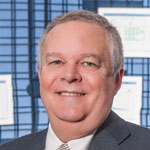Pamela Mulder is a self-professed problem solver. After almost 20 years in corporate marketing, she’s looking for her next puzzle.
» Today, there are more and more things that are core and similar across cultures than there are differences. From a marketing perspective, that means a lot more efficiencies and more building of global brands.
» I started undergrad as premed. The coursework wasn’t the problem. The challenge was knowing that, as a surgeon, I wouldn’t have contact with people.
» During a college break, I went down to the Dominican Republic for a crash course, and found that I loved languages. I knew I wanted to do something international, where travel and languages would play a role. I took a year off to perfect my Spanish after college, and then went to study international marketing.
» My first job was with Intercontinental Hotels. I knew that’s exactly where I belonged. It was the perfect balance between strategy and creative thinking. The other thing was that I was covering the Americas, both North and South. I spent a ton of time in Latin America.
» When Intercontinental was bought by Bass PLC, the main question was how to find common ground between all their different hotel brands. We had to strategically integrate their frequency and loyalty programs into one strongly branded program that could span the various customer demographics. It was a huge global project, and took a couple of years.
» I’m a fixer. I’m a doer and a fixer, and I like to come into something that’s a little bit messy, or build something that’s young into something bigger. I like to do that with teams.
» With Intercontinental’s integration completed, the ship was sailing smoothly. It felt very good, but it was also becoming a little too predictable, which is the reason I entertained Rosetta Stone. I thought, here’s a little company no one knows about. Maybe I can do something here.
» I was with Rosetta Stone for nine years, and so I actually had four roles there. I went there to launch the consumer side of the business. Rosetta was started in 1993, and for the first 11 years, they were institutionally based, selling predominantly to schools and government. They thought there might be another market, but didn’t really have anyone who knew direct consumer marketing, so they brought me over from Intercontinental.
» Once the US consumer business had momentum with TV and radio spots, kiosks, and retail partners, we opened our first international office in the UK. My team was responsible for helping put that team together, because it’s actually a very similar market to the US. It’s part of Europe, but it’s an island, so they have about the same affinity for second- or third-language acquisition.
» The customer is king. You hear that over and over again in marketing. I heard that for years, but the reality is that you no longer have control over the voice of that customer. It’s more important than ever to be putting the customer first, listening to them, and making sure you’re responding and being perceived as a customer-first company. With social-media channels, customers will either crucify or validate you. You will be called to the carpet, so you better be what you say you are.
» We were growing like crazy, and, by the time we got to 2006, I went to my boss and said we needed a brand team. I was nervous about not having enough concrete brand guidelines, mission statements, and all that stuff you need to grow into the company you’re becoming.
» After I became the VP of our global brand marketing, we did a major product
relaunch. We took the same product we had since the beginning of 1993 and completely redid it. After we rolled it out in 2007, we spent the whole next year prepping for our IPO.
» My next role was SVP of international development. We planned a number of new international office openings over the next two years. I was on the road a lot, but it was a win-win, because I could do this job from anywhere. I was able to be with my fiancé, who was not in the States at the time, a lot more.
» After my husband and I got married, we moved back to headquarters in DC, and I took on the CMO role. While it was a blast, my husband’s work was pulling him south. He asked, “What if you try something new for a while and follow me to Florida?” So I did. At that point, I’d been at Rosetta for nine years, which is a great number.
» Customers aren’t looking for free, they’re looking for a good value. If they enjoy their experience, and like your product, they will tell their friends. That will be your top return on investment.
» There are hundreds of little Rosetta Stones out there. I’ve had great experiences with great companies and would love to jump in to see if I can help build something beautiful again.

